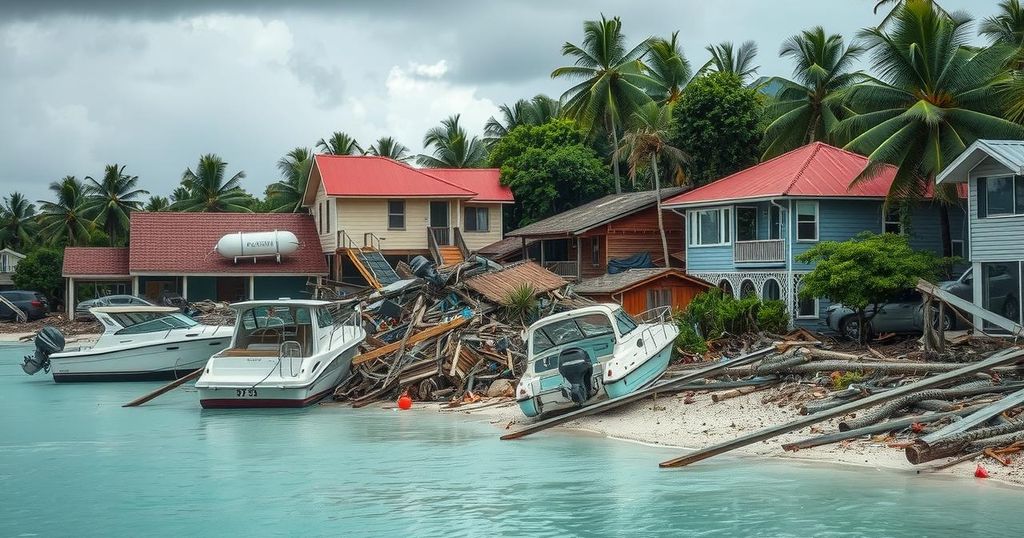Death Toll Rises as Cyclone Chido Devastates Mayotte and Northern Mozambique

Cyclone Chido has resulted in at least eleven deaths and extensive damage in Mayotte, with further concerns rising in Mozambique. The storm, classified as Category 4, has caused critical infrastructure damage and injuries, prompting emergency responses and international aid efforts.
At least eleven individuals have perished following the devastation wrought by Cyclone Chido in Mayotte, a French territory in the Indian Ocean, as reported by France’s Interior Ministry. The cyclone, classified as a Category 4 storm with winds exceeding 220 kph (136 mph), inflicted severe damage on Mayotte before making landfall on the African mainland, particularly in Mozambique, where concerns are being raised about further casualties and destruction. Limited communication has impeded efforts to ascertain an accurate count of casualties, with reports indicating that 246 residents have sustained injuries and nine others remain in critical condition at a local hospital.
The effects of Cyclone Chido on Mayotte have been described as the most destructive in a span of ninety years, as local and national officials assess the extensive harm to infrastructure, including the key hospital and airport. As Prime Minister François Bayrou remarked, public infrastructure in Mayotte has sustained substantial damage, exacerbating the challenges faced by vulnerable populations living in precarious conditions. In response to the destruction, the French Interior Ministry has deployed 1,600 officers to aid affected communities and prevent looting, while additional emergency responders have arrived from France and Reunion.
Cyclone Chido’s impact extended beyond Mayotte; it subsequently struck northern Mozambique, with emergency services estimating that 2.5 million people may be affected across several provinces. UNICEF has reported extensive damage to homes, educational institutions, and healthcare facilities in Cabo Delgado, emphasizing the need for urgent assistance to maintain essential services in the wake of the disaster. As regions prepare for potential flooding and disease outbreaks such as cholera and malaria, historical data indicates that cyclones are intensifying due to climate change, leaving poorer nations grappling with severe humanitarian challenges while calling for support from affluent nations.
Cyclone Chido is a severe tropical cyclone that has significantly impacted the French territory of Mayotte and northern Mozambique. Mayotte, characterized by its challenging socio-economic context as France’s poorest island, recently faced dire consequences from intense winds and flooding. The humanitarian crisis has prompted local and international authorities to respond quickly with emergency aid and supplies, highlighting the ongoing threats that such natural disasters pose to already vulnerable regions. Cyclone seasons in the southeastern Indian Ocean are becoming increasingly dangerous due to climate change, raising alarm about the humanitarian implications for communities with limited resources to cope with the aftermath of cyclones.
In summary, Cyclone Chido has tragically led to at least eleven fatalities and significant devastation in Mayotte, while also impacting northern Mozambique. With emergency measures underway and more aid required, the situation underscores the critical challenges faced by low-income nations in the wake of climate change-induced natural disasters. Officials continue to monitor the unfolding crisis, as communities begin to reckon with the long-term impact of the cyclone on their infrastructure and livelihoods.
Original Source: www.seattletimes.com






